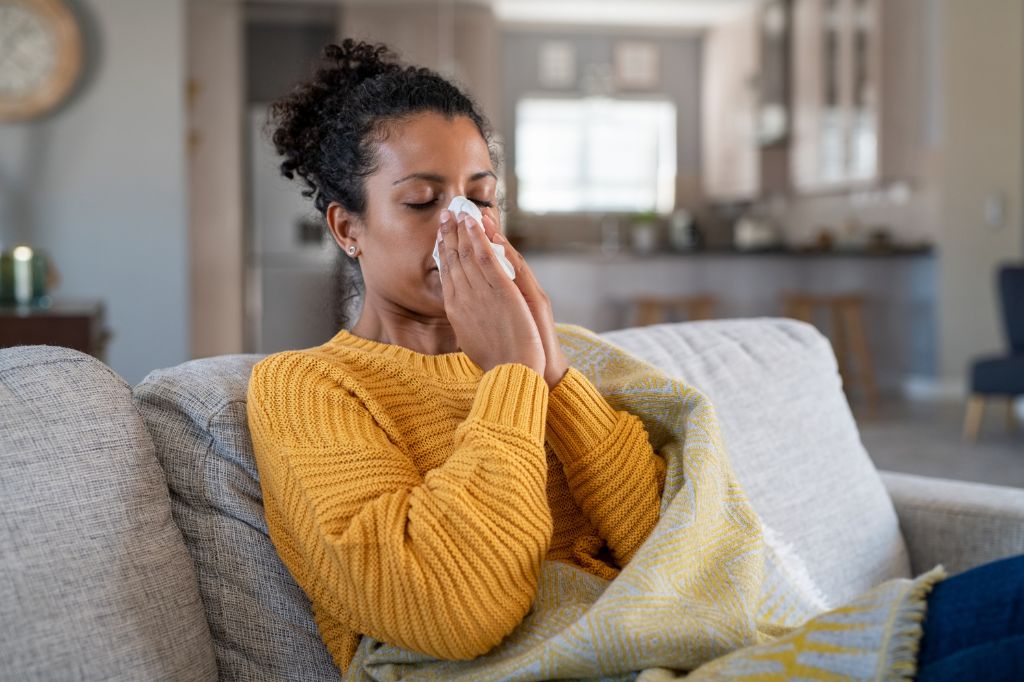
What are My Allergy Treatment Options?
Allergies are the sixth leading cause of chronic illness in the United States, affecting over 50 million Americans each year. Allergic reactions can be triggered by contact with substances like pollen, certain foods, irritants in pet dander, or dust mites. Knowing what type of allergy you have is an essential first step in finding the right allergy treatment.
Types of Allergies
Skin Allergies
Skin allergy reactions can include eczema, hives, and contact dermatitis. Common symptoms of allergic skin conditions are rashes or swelling.
Food Allergies
Symptoms of food allergies include hives, vomiting, difficulty breathing, and abdominal pain. Food allergies can also cause eczema (inflammation of the skin). In some cases, food allergies can cause a severe life-threatening reaction known as anaphylaxis.
Environmental Allergies
Symptoms of environmental allergies include sneezing, runny nose, watery eyes, and itchy throat. This allergy is triggered by outdoor substances like pollen or mold spores.
Drug Allergies
Symptoms of drug allergies can range from mild itching to life-threatening reactions that affect multiple organ systems. If you think you may have an adverse reaction to a medication, don’t be afraid to speak up. Your doctor will want you to get the treatment that works best for you.
Treatment Options for Your Allergies
Living with allergies can be challenging, but there are several treatment options and preventative measures that can help minimize your allergy symptoms.
The best way to reduce your allergy symptoms is by avoiding triggers like pollen and dust mites. You may also wish to avoid certain foods or drugs if you have an allergic reaction to them. Avoiding triggers will prevent exposure and lessen your chances of suffering from an allergic reaction.
Preventative Medicines
Over-the-counter antihistamines help block the effects of histamine, which is an essential mediator in allergic reactions. These drugs work best when you take them before coming into contact with an allergen.
Allergy Testing
Testing your allergies can help determine which substances are triggering your symptoms. Testing your allergies also gives you an idea of what to avoid in the future. Allergy tests often involve a skin test, in which a small amount of a diluted allergen is pricked into the skin to watch for redness and swelling. A blood test can also be done if you have already had an allergic reaction or are suffering from anaphylaxis. Sometimes, an elimination diet is done to test for food intolerances.
Biologics
Northeast Allergy offers biologics to help treat chronic hives, eczema, and asthma.
Immunotherapy: This treatment involves administering small amounts of an allergen to your body in order to help build up a tolerance and prevent allergic reactions. The first step is skin testing, followed by desensitization. If you suffer from seasonal allergies, immunotherapy can reduce the number of allergy symptoms throughout the year. In addition, immunotherapy can help treat allergic rhinitis, allergic asthma, conjunctivitis, or stinging insect allergies. Immunotherapy can come in two forms:
- Injection immunotherapy, also known as allergy shots, is a painless procedure involving administering small doses of the allergen under your skin to build up an allergy tolerance gradually.
- Sublingual immunotherapy, also known as drops or tablets, is placed under the tongue and taken daily for several months at home before gradually increasing to full strength.
Nasal Polyp Treatment: Nasal Polyps are non-cancerous growths on the lining of your nasal passages. These can cause a sense of congestion, loss of smell, and reduced airflow. Nasal polyps are most closely associated with asthma, recurring infection, allergies, drug sensitivity, or immune disorders. The physicians at Northeast Allergy offer biologics to help treat nasal polyps.
Oral Immunotherapy for Peanut Allergy: Oral immunotherapy is shown to be effective in treating peanut allergies. Oral immunotherapy is done by increasing the dose of peanut protein taken each day. Oral immunotherapy can increase the threshold for reactions and can ultimately help protect patients from life-threatening reactions (anaphylaxis).
Contact Northeast Allergy
Northeast allergy specializes in a wide range of asthma and allergy treatments for adults and children. If these problems negatively impact your quality of life, book an appointment or call Northeast allergy at (978) 519-7164 today.



